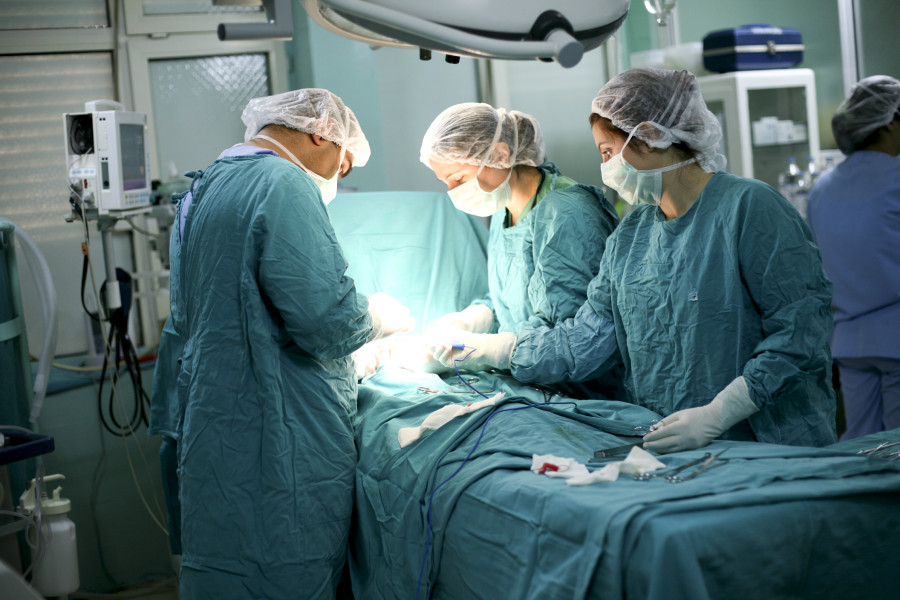A pioneer in providing exceptional patient care, Mount Hospital in Perth has been offering the latest medical technology and state-of-the-art clinical expertise in Western Australia for more than 25 years. Staffed by experienced doctors with a wide range of specialities, the hospital offers premium service in a friendly atmosphere and aspires for the very best health outcomes for its patients.

Mount Hospital’s philosophy is centred around providing excellence in health care in a compassionate manner while keeping the patient’s interest as the focus of its efforts. The 224 bed facility is fully accredited by the Australian Council on Healthcare Standards (ACHS), a national accreditation body that ensures hospitals provide the highest standards of service by conducting an external peer assessment to evaluate level of performance.
 The hospital provides a comprehensive range of medical specialities and services and its facilities include 11 operating theatres, 2 cardiac catheter laboratories and an endoscopy suite. It has an excellent location at the foot of the beautiful Kings Park on Mounts Bay Road, with most patient rooms enjoying a garden view and several overlooking the Swan River.
The hospital provides a comprehensive range of medical specialities and services and its facilities include 11 operating theatres, 2 cardiac catheter laboratories and an endoscopy suite. It has an excellent location at the foot of the beautiful Kings Park on Mounts Bay Road, with most patient rooms enjoying a garden view and several overlooking the Swan River.
With the appointment of Professor David Playford to the newly created role of Professor of Cardiology, Mount Hospital has become the only private hospital in Western Australia to have a professorial Cardiology Unit. It also has the largest Coronary Care Unit amongst private hospitals in the state and is operational for 24 hours a day, 7 days a week. Commenting on the appointment of Professor David Playford, Jade Phelan, General Manager of the hospital said, “This role has been created to provide leadership and education to our cardiology service and support to all Junior Doctors in Cardiology at Mount Hospital”.
The Perth Breast Clinic of Mount Hospital is staffed by doctors with extensive experience in diagnosing and treating breast cancer. The Clinic’s breast radiologists, pathologists, surgeons, oncologists, radiotherapists, nuclear medicine specialists, breast care nurses and physiotherapists are a multi-faceted team who work in close co-ordination to provide holistic treatment which has patient care as its focal point. If you are diagnosed with breast cancer the doctors will discuss the range of treatments available to you and help you decide on the most appropriate one.
The clinic also provides breast screening and counselling for high risk patients as also post-treatment consultations. The Perth Breast Clinic lays special emphasis on the psychological aspects of a cancer diagnosis and understands the anxiety, fear and depression that patients may undergo. The consultations and treatment are structured around alleviating the disease and the stress and apprehension it produces. The prime focus of the clinic is to provide a compassionate and caring environment where the patient is at the centre of the entire medical team’s attention.
Patients who visit the Perth Breast Clinic can expect to have their full assessment completed on the initial day itself. Radiology and pathology investigations are located on site and your breast physician will discuss the reports with you and arrange for additional investigations if necessary. Throughout the process of your treatment, Breast Care Nurses will be available to provide the help and support that you may require.
The hospital also has a Breast Clinical Trials Unit (BCTU), a not-for-profit research institution whose objective is to build on the research and clinical activities that the unit has been conducting for over a decade. The unit’s special focus is to understand the needs and requirements of women from the time when they are diagnosed with the disease, to the duration of its treatment and also the post-treatment period when they may need support and counselling.
Mount Hospital also offers the facility of Direct Access Endoscopy. Patients may refer themselves for this non-surgical procedure which is used for examination of the digestive tract without a prior consultation. The state-of-the-art endoscopy equipment available at our dedicated endoscopy suite and our trained doctors and medical staff ensure a unique and totally safe patient experience. This facility is available for upper gastrointestinal endoscopy, colonoscopy, flexible sigmoidoscopy and endoscopic retrograde cholangiopancreatography (ERCP).
An endoscopy is normally recommended when your General Practitioner notices certain symptoms, which in his opinion, need further investigation. In the normal course these could include stomach pain, ulcers, gastritis, difficulty in swallowing, digestive tract bleeding, changes in bowel habits, polyps or growth in the colon. Flexible sigmoidoscopy is a procedure that allows your doctor to examine the rectum and the lower (sigmoid) colon and is a screening test for colon cancer. A special form of endoscopy called endoscopic retrograde cholangiopancreaticography allows pictures of the pancreas, gall bladder and related structures to be taken. The hospital ensures that the procedure is performed in a manner that keeps your comfort and safety uppermost in mind.
The Perth Sleep Clinic located in the Mount Hospital Medical Centre provides a much needed service to persons with sleep disorders. Those suffering from a chronic lack of sleep, inability to sleep at night, sleepiness in the daytime and other forms of sleep deprivation require urgent attention as unhealthy sleep could lead to heart disease, weight gain and a shortened lifespan. The Perth Sleep Clinic offers inpatient and outpatient treatment for this malady and has access to the latest technologies for treatment of insomnia and sleep apnea. The clinic has 6 beds in soundproofed rooms and utilizes sleep diaries, actigraphy and respiratory function testing among other methodologies to diagnose this insidious disease so that corrective treatment can be initiated.
At Mount Hospital all our activities are conducted with a single objective in mind – to restore the health of our patients in a safe and compassionate manner. Towards this end one of the initiatives that we have concentrated on is the implementation of a number of infection control practices. Many patients have a lower resistance level to infections than a healthy person. They are specially susceptible to clostridium difficile, an infection of the bowel that causes diarrhoea and staphylococcus aureus bacteraemia, a serious infection caused when this bacteria enters the blood stream. As a result of the hospital’s efforts to implement best practices for the reduction of infection, Mount Hospital has maintained an exemplary record on this count over the years. The data regarding the hospital’s achievements are:
– Clostridium difficile: The rate of infection in other hospitals in Australia is in the range of two to three infections for every 10,000 days of patient care compared to less than one infection in Mount Hospital for 10,000 days of patient care.
– Staphylococcus aureus bacteraemia: The Australian government’s target for this infection is a maximum of two cases for every 10,000 days of patient care. Mount Hospital’s record shows the infection rate at between nil and one.
The hospital has Specialised Infection Control staff who constantly monitor this vital area and collect and disseminate data which identifies patterns and trends. There is a constant effort to keep infections in the hospital at the minimal level.
Mount Hospital is a part of Healthscope Hospitals, Australia’s largest healthcare provider which operates 4,500 beds in 33 hospitals, 4 mental health hospitals and 4 rehabilitation facilities in Australia. This parentage give Mount Hospital access to a wealth of resources and enables it to deliver unmatched quality in its medical facilities.
Mount Hospital is the pre-eminent private hospital in Western Australia and has built for itself a reputation of trust and competence over the last 25 years. Its core values encompass the provision of the highest quality diagnosis, treatment and care for its patients. It continually strives to surpass the benchmarks that it sets for itself and follows a practice of updating the skills of its doctors and staff and keeping itself abreast of the latest developments in medical science. All its actions are dictated by its credo that the care and treatment of the patient is the ultimate objective of the hospital.




 This information will never be shared to third parties
This information will never be shared to third parties